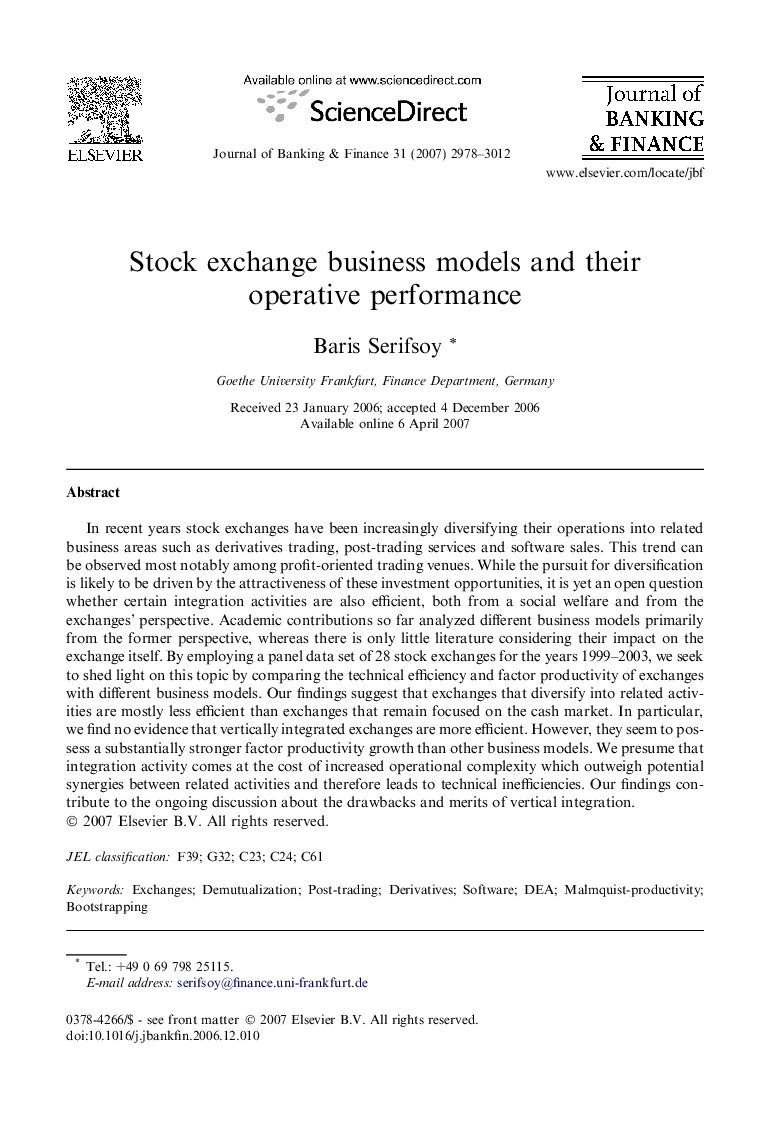| Article ID | Journal | Published Year | Pages | File Type |
|---|---|---|---|---|
| 5091190 | Journal of Banking & Finance | 2007 | 35 Pages |
In recent years stock exchanges have been increasingly diversifying their operations into related business areas such as derivatives trading, post-trading services and software sales. This trend can be observed most notably among profit-oriented trading venues. While the pursuit for diversification is likely to be driven by the attractiveness of these investment opportunities, it is yet an open question whether certain integration activities are also efficient, both from a social welfare and from the exchanges' perspective. Academic contributions so far analyzed different business models primarily from the former perspective, whereas there is only little literature considering their impact on the exchange itself. By employing a panel data set of 28 stock exchanges for the years 1999-2003, we seek to shed light on this topic by comparing the technical efficiency and factor productivity of exchanges with different business models. Our findings suggest that exchanges that diversify into related activities are mostly less efficient than exchanges that remain focused on the cash market. In particular, we find no evidence that vertically integrated exchanges are more efficient. However, they seem to possess a substantially stronger factor productivity growth than other business models. We presume that integration activity comes at the cost of increased operational complexity which outweigh potential synergies between related activities and therefore leads to technical inefficiencies. Our findings contribute to the ongoing discussion about the drawbacks and merits of vertical integration.
